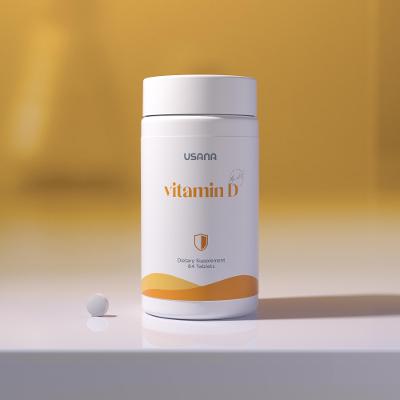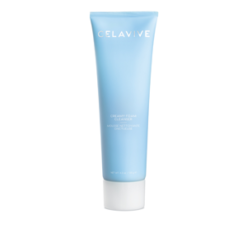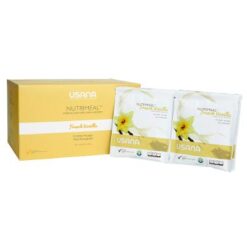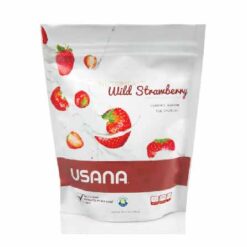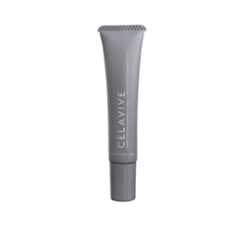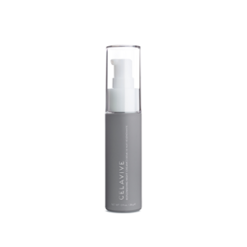USANA Vitamin D
AUD $31.90 Original price was: AUD $31.90.AUD $29.00Current price is: AUD $29.00.
It is common knowledge that vitamin D plays an important role in helping the body to absorb calcium and in bone mineralisation. However accumulating scientific evidence is proving that vitamin D provides more health benefits than simply bone health. Evidence is emerging that there is wide spread vitamin D deficiency in the broader population.
Product Description Below
USANA Vitamin D
Vitamin D is necessary for normal bone mineralisation and growth, maintenance of muscle strength and coordination, cardiovascular health, and robust and balanced immune function.
Vitamin D is unique among vitamins working more like a hormone at the level of our DNA. Supplementing Vitamin D has been estimated to regulate somewhere between 200-300 genes and likely why vitamin D has been linked to so many beneficial health outcomes.
Despite its importance, a significant portion of the population is deficient in Vitamin D.
USANA Vitamin D – The Super Supplement You Should Be Taking Everyday

Vitamins and minerals play a vital role in the proper function of virtually every system of our body. Whether it’s our muscular, neurological, cardiovascular, or immune system, we cannot expect them to perform optimally without the proper nourishment that we obtain from essential nutrients.
While supplementing high quality vitamins and minerals like USANA Products are important, some tend to get more of a spotlight than others.
Vitamin C is probably the most sold vitamin supplement in the industry and for good reason. Supplements like USANA Booster C600 can be a difference-maker in ensuring that your daily vitamin C requirements are met.
Vitamin D, however, is equally as important as its predecessor, and yet it does not tend to fly off the shelves. This is most likely because we all associate vitamin D with sunlight, however, it’s really not that simple.
If you thought you were getting all the vitamin D you needed from those brisk afternoon walks or that time you went to the beach last week, you’re in for some bad news.
To get adequate sun exposure without damaging our skin is challenging these days. Some research is suggesting you need to be at the center of the earth (the equator), where the sun is strong but has the most ozone protection so your body can absorb Vitamin D.
We’re not too sure about this research so we’re not suggesting you go streaking in Ecuador to get sufficient vitamin D.
USANA Health Sciences has upped the ante and developed USANA Vitamin D, the best supplement of its kind on the market.
Changing the Game with USANA Vitamin D
USANA didn’t just produce a supplement that had this very important nutrient in it. Using their years of experience and research, they developed a supplement using the most beneficial form of Vitamin D which is called; cholecalciferol (a.k.a. vitamin D3).
Studies have shown that D3 is much more useful to the body than ergocalciferol (vitamin D2) because it is more efficient at elevating your blood’s active vitamin D levels.
A recent study showed that this crucial decision has made USANA Vitamin D six times more likely to raise vitamin D in the blood to optimal levels.
So up until now, you have read that vitamin D is very important for your overall health, but what does it impact exactly?
Here are 4 main benefits that adequate vitamin D can provide you with:
- Supports healthy growth of teeth and bones
- Aids in muscle strength and coordination
- Boosts immune function
- Maintains healthy cell function
The K Factor
Making the highest quality pharmaceutical grade vitamin D supplement should be enough for most people, but USANA Health Sciences are not the industry leader because they do “just enough”.
USANA Vitamin D also provides you with another important nutrient that is often lacking in our food choices, Vitamin K2.
Each tablet of USANA Vitamin D packs 30mcg of two types of vitamin K2 known as menaquinone-4 (MK-4) and menaquinone-7 (MK-7).
To simplify this, combining these two vitamins more than makes up for any dietary deficiencies you may have of this important nutrient.
Adding this form of vitamin K2 is a total game-changer and one that could only be expected from a company such as USANA. K2 adds to the list of benefits in USANA Vitamin D because it plays a major role in the healthy function of your cardiovascular system.
D for Deficiency
Despite how important this vitamin is for your overall health, Vitamin D deficiencies are all too common across the world, and this includes developed countries like the United States. Up to two-thirds of the U.S. population is believed to be vitamin D deficient.
This problem has proven to be a health hazard in many places likely due to any one of the following indicators:
Poor UVB Exposure

With the fear of skin cancers and sun damage to our skin weighing down on us, humans abandoned their outdoor roots and by and large evolved into indoor creatures – enter iPhones and X-Box’s.
This monumental lifestyle change resulted in a decrease in the amount of ultraviolet B (UVB) we absorb. Even those of us who spend time outdoors and wear sunscreen still do not absorb adequate UVB.
Your Geographic Location and Skin Tone
High levels of pollution can also deflect UVB rays thereby hindering your vitamin D intake. People with a darker skin tone, or Asian decent often find it hard to absorb adequate levels of Vitamin D and have been advised to consider supplementing.
Colder Months
If you live in a country that has a colder fall and winter months, you know that the optimal amount of sunlight throughout the day is limited to peak afternoon hours, and from there, darkness sets in pretty quickly. Vitamin D intake should be part of your daily supplement routine during the winter months.
Aging Process
Unfortunately, our bodily functions decline as we get older. Apart from losing its elasticity, your skin also does not absorb vitamin D as easily. Your kidneys also slow down their ability to convert the vitamin D your body absorbs from the sun.
Being Overweight
People who are overweight will automatically need a larger dose of vitamin D. This is because vitamin D is fat-soluble, which means it needs a comparable amount of fat in the body to collect and store it. The more fat your body has, the more vitamin D you’ll need to allow for adequate absorption.
Stay Protected with USANA Vitamin D
Getting enough vitamin D in your diet daily would require you to consume a large number of specific foods. To avoid this, USANA Vitamin D packs an ideal dose of 50mcg. This amount is the equivalent of eating four pieces of salmon.
On the other hand, you don’t want to risk overexposing yourself to sunlight and have to deal with all of the harmful effects that comes with it. One tablet of USANA Vitamin D will allow you to meet your daily needs and help support the healthy function of the body’s organs and systems.
Vitamin supplements should not replace a balanced diet.
USE ONLY AS DIRECTED. ALWAYS READ THE LABEL.
IF SYMPTOMS PERSIST SEE YOUR HEALTH CARE PRACTITIONER.
- Its free to join.
- It's easy to do. learn more
Related products
Celavive Skincare Range
Digestion & Detox
Diet & Energy
Diet & Energy
Diet & Energy
Celavive Skincare Range
Celavive Skincare Range
Celavive Combo Packs






